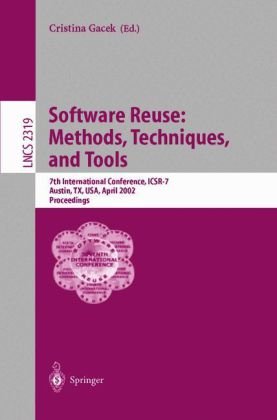

Most ebook files are in PDF format, so you can easily read them using various software such as Foxit Reader or directly on the Google Chrome browser.
Some ebook files are released by publishers in other formats such as .awz, .mobi, .epub, .fb2, etc. You may need to install specific software to read these formats on mobile/PC, such as Calibre.
Please read the tutorial at this link: https://ebookbell.com/faq
We offer FREE conversion to the popular formats you request; however, this may take some time. Therefore, right after payment, please email us, and we will try to provide the service as quickly as possible.
For some exceptional file formats or broken links (if any), please refrain from opening any disputes. Instead, email us first, and we will try to assist within a maximum of 6 hours.
EbookBell Team

5.0
100 reviewsAs a result of the open-source movement there is now a great deal of reusable software available in the public domain. This offers significant functionality that commercial software vendors can use in their software projects. Open-source approaches to software development have illustrated that complex, mission critical software can be developed by distributed teams of developers sharing a common goal. Commercial software vendors have an opportunity to both learn from the op- source community as well as leverage that knowledge for the benefit of its commercial clients. Nonetheless, the open-source movement is a diverse collection of ideas, knowledge, techniques, and solutions. As a result, it is far from clear how these approaches should be applied to commercial software engineering. This paper has looked at many of the dimensions of the open-source movement, and provided an analysis of the different opportunities available to commercial software vendors. References and Notes 1. It can be argued that the open-source community has produced really only two essential 9 products -- Apache (undeniably the most popular web server) and Linux although both are essentially reincarnations of prior systems. Both are also somewhat products of their times: Apache filled a hole in the then emerging Web, at a time no platform vendor really knew how to step in, and Linux filled a hole in the fragmented Unix market, colored by the community s general anger against Microsoft. 2.Evans Marketing Services, Linux Developers Survey, Volume 1, March 2000.